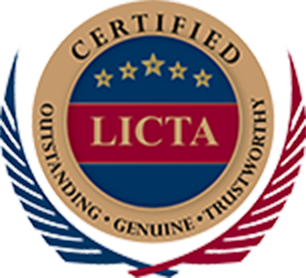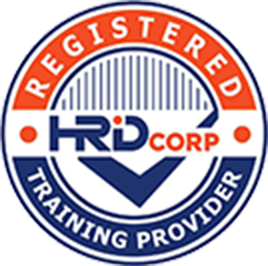Introduction
The tax treatment for investment holding company in Malaysia is governed by Section 60F of the Income Tax Act 1967 (ITA) and the Public Ruling No. 2/2024 issued by the Inland Revenue Board of Malaysia (IRBM).
An Investment Holding Company (IHC) that is not listed on Bursa Malaysia is generally taxed differently from a listed IHC. The main distinction lies in how their investment income and expenses are treated for tax purposes.
Income Classification under Section 60F ITA
For non-listed Investment Holding Companies, income derived from the holding of investments — such as interest, dividend, and rental (both business and non-business) — is regarded as non-business income.
Any other income not arising from the holding of investments is treated as income under paragraph 4(f) of the ITA (other income).
Permitted Expenses under Section 60F
Expenses that fail the “wholly and exclusively” test under Section 33(1) of the ITA cannot be deducted unless they fall within permitted expenses defined for IHCs.
Permitted expenses include:
- Directors’ fees
- Wages, salaries, and allowances
- Management fees
- Secretarial, audit, accounting fees, telephone, printing, stationery, postage
- Office rent and maintenance expenses
The deductible permitted expenses are determined by the following formula (whichever is lower):
- a) A × (B ÷ 4C), or
b) 5% of B
Where:
- A = Total permitted expenses (less any similar receipts)
- B = Gross income from dividends, interest, and rent chargeable to tax
- C = Aggregate gross income from dividends, interest, rent, and gains from realisation of investments
Treatment of Income for Listed IHCs (Section 60FA ITA)
When an Investment Holding Company is listed on Bursa Malaysia, its income can fall under two categories:
a) Ordinary / Normal Business Income
Income derived from genuine business activities (e.g., management fees from subsidiaries) is treated as business income under Section 4(a).
b) Deemed Business Income
Income from holding of investments — including interest, dividends, or rental (business and non-business) — is treated as business source income under Section 4(a).
Each income source must be assessed separately as an individual business source.
Treatment of Expenses
a) Ordinary / Normal Business Source
Expenses incurred wholly and exclusively for producing income can be fully deducted.
Any excess forms a current year business loss (CYBL), which can be carried forward to offset future income.
b) Deemed Business Source
Expense deduction is restricted to the amount of gross income from that source.
Any excess expense becomes a permanent loss and cannot be carried forward.
➡️ Common expenses are apportioned among business sources based on gross income, while interest expenses are apportioned according to investment cost.
Treatment of Capital Allowances (CA)
a) Ordinary / Normal Business Source
CA on qualifying assets can be deducted without restriction.
Unutilized CA can be carried forward to future years of assessment (YAs).
b) Deemed Business Source
CA deduction is limited to the adjusted income of that source.
Unutilized CA cannot be carried forward, resulting in permanent loss.
➡️ Common CA on shared assets is apportioned among income sources based on gross income ratio.
Rental Income: Capital Allowance & Industrial Building Allowance (IBA)
Capital Allowance (CA) and Industrial Building Allowance (IBA) are claimable only if rental income qualifies as a business source.
Under Section 60FA, if rental income from property is treated as a business of holding of investment, CA and/or IBA can be claimed.
However, when a company becomes a non-listed IHC, CA claims are no longer allowed, unless the company is listed on Bursa Malaysia.
➡️ Under Paragraph 60 of Schedule 3, an IHC can still claim IBA if the tenant uses the building as an industrial building.
Listed or Delisted During the Basis Period
If a company becomes listed during a basis period, it is deemed listed for the entire YA.
Conversely, if it becomes delisted during the period, it is still deemed listed for that whole year.
This ensures administrative consistency for tax purposes.
Key Takeaways
- Non-listed IHC income from investments is treated as non-business source.
- Only “permitted expenses” are deductible under Section 60F.
- Listed IHC investment income is deemed business income under Section 4(a).
- CA and IBA are only claimable if rental income is a business source.
- Listed/delisted companies retain their status for the full assessment year.
ANC Group – Your Personal Tax Advisor
Tax consulting is the core service of ANC Group. Our tax professionals provide clients with comprehensive tax support and guidance. We offer tax consulting and compliance services for expatriates, entrepreneurs, and listed and non-listed companies.
Our tax consulting services include business tax, transaction tax, personal tax, and corporate income tax. We don’t just guide you in interpreting and applying complicated taxation rules, but to explore new opportunities and business trends.
ANC Group keep you abreast with Malaysia tax updates and any changes in the local regulations.
We work closely with industry specialists, authorities, and associated professionals within ANC Group to provide the best-in-class integrated tax planning solutions. ANC specialists coordinate the accounting and taxation services to bring your business to success.
If you need professional tax advisory services regarding the Malaysia Income Tax Act 1967, our team is ready to assist you. Contact us here to discuss how we can support your business.










